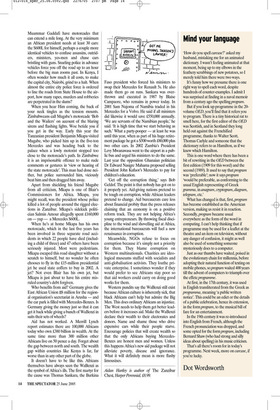Mind your language
‘How do you spell carcase?’ asked my husband, mistaking me for an animated dictionary. I wasn’t feeling animated at that moment, being up to my elbows in the feathery scrubbings of new potatoes, so I merely told him there were two ways.
It’s funny how we presume there is one right way to spell each word, despite hundreds of counter-examples. I admit I was surprised at finding in a naval memoir from a century ago the spelling program.
But if you look up programme in the 20volume OED, you’ll find that it refers you to program. There is a tiny historical rat to smell here, for the first editor of the OED was Scottish, and in Scotland they long held out against the Frenchified programme, thanks to Walter Scott, Thomas Carlyle and someone that the dictionary refers to as Hamilton, as if we knew which Hamilton.
This is one word where there has been a bit of rewriting in the OED between the first edition (1909 for this word) and the second (1989). It used to say that program was ‘preferable’; now it says program ‘would be preferable, as conforming to the usual English representing of Greek gramma, in anagram, cryptogram, diagram, telegram, etc.’ What has changed is that, first, program has become established as the American version, making us resist it in reaction. Secondly, program became usual everywhere as the form of the word in computing. I can’t help thinking that if programme may be used for a leaflet at the theatre and an item on television, without any danger of confusion, it might as well also be used of something someone mysteriously does to a computer.
Just as our thumbs have waited, poised in the evolutionary chain for millennia, before adopting their natural function of texting on mobile phones, so program waited 400 years till the advent of computers to triumph over the effete programme.
At first, in the 17th century, it was used in English transliterated from the Greek as programma, meaning ‘a public written notice’. This could be an edict or the details of a public celebration, hence its extension, in the form program, to the musical bill of fare for an entertainment.
In the 19th century it was re-introduced into English from French, although the French pronunciation was dropped, and some opted for the form program, including Bernard Shaw (who had strong and silly ideas about spelling) in his music criticism.
That’s all there’s room for in today’s programme. Next week, more on carcase, if you’re lucky.
Dot Wordsworth


































































 Previous page
Previous page